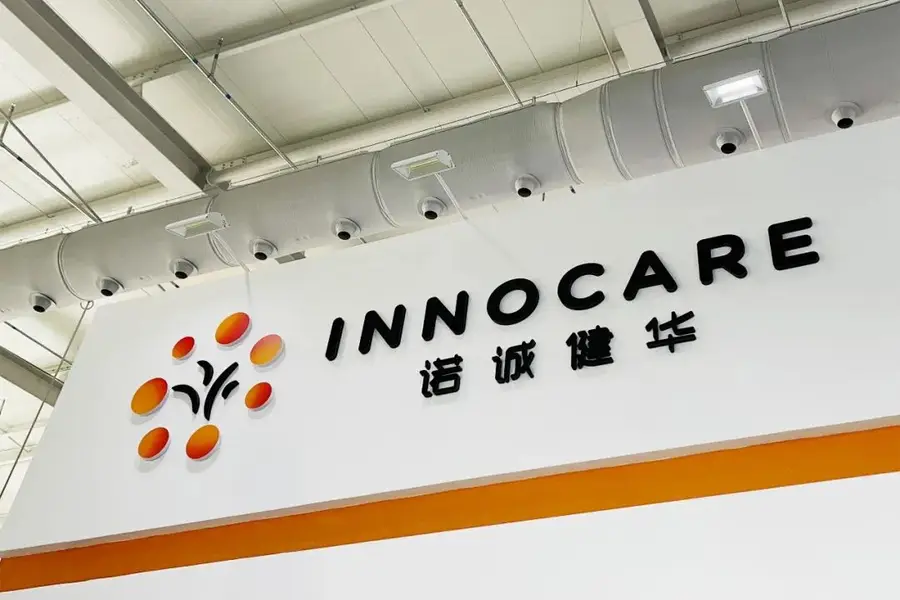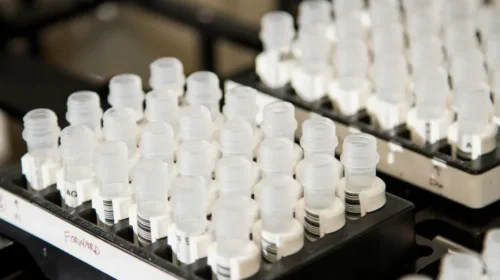InnoCare licensing deal flops due to lack of upfront cash

The Chinese biotech agreed to sell some of the rights to its flagship drug for a sum that could exceed $2 billion but investors were unhappy with the fine print
Key Takeaways:
- The counterparty, Zenas BioPharma, will hand over just $35 million as a cash downpayment, a mere 1.75% of the potential deal value
- Rights to the drug in question, orelabrutinib, were returned in 2023 when multinational Biogen pulled out of a partnership with InnoCare
By Molly Wen
When a biotech sells off rights to a promising new drug, investors have typically reacted positively to the news, welcoming the buyer’s cash and the vote of confidence in the company’s research.
But the stock market is becoming more discerning about these licensing transactions, known in the drug industry as business development deals.
A case in point is InnoCare Pharma Ltd. (9969.HK; 688428.SH), a drug developer focusing on therapies for autoimmune diseases and cancer.
The company announced a licensing deal that could be worth more than $2 billion on Oct. 8, shortly before the end of a Chinese stock market holiday. But the market response was a rout rather than a rally, as InnoCare’s Hong Kong-listed shares plunged around 22% over two trading days after the deal was announced.
InnoCare Pharma said it had agreed to sell global rights to its drug orelabrutinib as a multiple sclerosis therapy to Zenas BioPharma Inc. (ZBIO.US), as well as handing over international rights to the product outside Greater China and Southeast Asia for conditions other than cancer. The agreement also includes rights to two pre-clinical assets.
In return, InnoCare stands to gain upfront, development, regulatory and commercial milestone payments that could add up to the impressive headline figure of $2 billion or more. However, the detailed terms proved to be a turn-off for investors.
The transaction includes just $35 million in upfront cash, with an additional $65 million in near-term milestone payments and a transfer of 7 million Zenas shares, worth roughly $146 million based on the closing price of $20.85 on Oct. 7.
The remaining $1.7 billion depends entirely on the drug meeting targets for research, regulatory clearance and commercial returns – all of which are highly uncertain.
Investor concerns centered on the tiny proportion of upfront cash, which at just 1.75% of the overall value is way below the average for Chinese biotech licensing deals. The market also worried about whether Zenas would be financially robust enough to deliver on its side of the deal.
Founded in 2019 and only listed in September last year, Zenas still ranks as a clinical-stage company. It logged first-half revenue of just $10 million in 2025, with a net loss for the period of $85.8 million, sowing doubts about its capacity to fund overseas trials and fork out future milestone payments.
Second time around for drug rights
The centerpiece of the deal, orelabrutinib, is InnoCare’s flagship product. The drug has been approved in China for certain types of cancer and works by inhibiting an enzyme, Bruton’s tyrosine kinase (BTK), that plays a role in inflammation and tumor growth. It is the only BTK inhibitor approved in China for relapsed or refractory marginal zone lymphoma and has also been cleared for use against blood cancers, with costs covered by China’s national drug reimbursement scheme.
InnoCare’s revenue rose 74.3% to 730 million yuan ($102 million) in the first half of this year from the same period of 2024, driven mainly by rising demand for its flagship drug. Orelabrutinib sales rose nearly 53% in the period to 637 million yuan.
The new deal marks the second time that InnoCare has sold orelabrutinib rights to an international partner. Biogen Inc. (BIIB.US) was granted rights for use against multiple sclerosis and related indications in 2021, paying a non-refundable upfront fee of $125 million. The $35 million cash from Zenas looks meager in comparison.
Biogen pulled out of the collaboration with InnoCare in 2023, less than two years after inking the deal, citing its right to terminate “for convenience” and without providing details on its reasons. At the time, InnoCare said it would step up its work on the product as a potential best-in-class BTK inhibitor for multiple sclerosis and other autoimmune diseases.
Since then, InnoCare has put the drug into a Phase Three trial against an aggressive form of multiple sclerosis, primary progressive MS. The company also plans to begin a Phase Three study of the drug as a treatment for secondary progressive MS, a chronic stage of the disease when symptoms are worsening, in the first quarter of 2026.
At a business update on Oct. 9, InnoCare pledged to keep pursuing partnerships as a way of globalizing its products, saying business development deals would be a strategic priority for the next three years.
The Zenas collaboration is already InnoCare’s second outbound licensing deal this year. In January, Chinese partners InnoCare and Keymed Biosciences Inc. (2162.HK) sold certain rights to a jointly developed bispecific antibody, ICP-B02, to Prolium Bioscience Inc. for up to $520 million in total payments plus a minority equity stake in the U.S. firm.
InnoCare has adopted a strategy of retaining what it regards as core assets while selling off other less critical rights. For example, it has kept global control of orelabrutinib as a cancer drug and has also held onto rights for its use against other conditions in Greater China and Southeast Asia.
At present, InnoCare’s price-to-sales ratio is about 16 times, against roughly 21 times for RemeGen Co. Ltd. (9995.HK; 688331.SH), another Chinese biotech whose share price has been buffeted by licensing deals. Whether this new InnoCare partnership with Zenas will mark a milestone on the path to global markets — or just another twist — only time will tell.
To subscribe to Bamboo Works weekly free newsletter, click here





